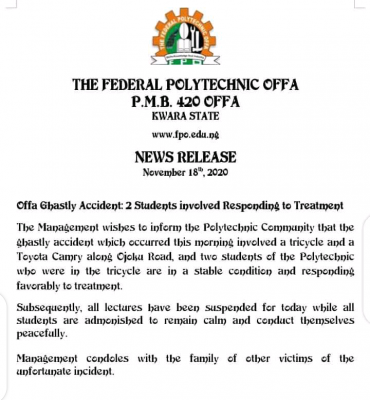
Religion and National value Scheme of Work for primary 3 for all private and public primary schools in Nigeria is out. All schools operating in Nigeria are mandated to operate with the government approved scheme of work for primary schools according to the federal ministry of education since it brings about unison in the educational sector. Notwithstanding, some private schools are at the liberty to introduce some special forms of administering knowledge to their pupils through a special teaching method known as the Montessori style. This method of teaching is fast becoming widely embraced in Nigeria by elementary schools as the best learning model for pupils at their elementary stages because this gives them a better foundation at their primary school level.
The continuous rise in the search for Religion and National value scheme of work for Primary 3 first term, second term and third term has been brought to our notice and we thought it necessary to come up with a comprehensive document that can be downloaded for free for your personal use and kept for future references. This scheme of work is ideal for teachers and assistant teachers in private and public primary schools in Nigeria.
This post will educate all persons who are in the teaching field about the current government approved scheme of work for Religion and National value for students in Primary 3 which covers all the topics meant for first term, second term and third term. It provides in non-ambiguous terms, what is expected by the National Common Entrance Examination Council as a body in preparing these students for the next level (national common entrance) which would eventually lead them to secondary school level.
Ideally, the Religion and National value scheme of work for primary 3 first term, is a continuation from the primary 2 scheme of work for Religion and National value, this scheme of work otherwise known as curriculum has been systematically arranged for ease of progression and proper understanding for little children. There has to be a flow, that is, a continuation from the previous class in order for kids to better understand the subject.
To further emphasize the importance of the subject matter, the scheme of work is used as a checklist to ensure that all topics are treated within the prescribed period until the revision week and examination day. It covers the topics and time frame given for each topic and sub topic. It also ensures that the learning process, aims and objectives of the subject meant for that class are successfully accomplished.
Note that the scheme of work for Religion and National value for primary three class is the same for both private and public primary schools in Nigeria, that is, the scheme of work for a private primary school is the same with that of public or government owned primary school. It is the responsibility of head teachers in primary schools to ensure this scheme of work is actively made use of as mandated by the ministry of education. Any school found doing otherwise would face the penalty for going against this directive.
Religion and national value is a subject that is not just offered in Primary 3 but at all level under primary school.
The scope of Religion and national value Scheme of work is quite broad because it covers both religious and ethics at the very elementary stage.
Provided in this post is the complete primary three (3) scheme of work for religion and national value. This scheme of work would go a long way in assisting educationists in primary school level that teaches this subject.
The scheme of work contains the list of expected topics to be covered for the entire session which includes first term, second term and third term.
In the area of religion scheme of work for first term covers topics like ; The promise of the savior, the meaning of Emmanuel, prophet Isaiah foretold the birth of Jesus Christ . While under national value, the topics covered Identify the various security agencies, Primary duties of security agencies, Respect among family members, Nuclear and extended families and their functions, Meaning and elements of national Identity
Second term talks about Jesus the way to the father, the second coming of Jesus christ, Jesus the true Good Shepherd, peaceful co-existence and so on. While topics under National value covers Identification of criminal behaviour, Reason for patriotism, Meaning and example of national symbols, description of national symbols. and Ways to identify someone who is abusing drugs and ways of helping someone who has abused drugs or medicines.
The Primary 3 scheme of work for religion and national value cover topics bordering on Jesus the bread of life, meaning of the bread of life and further illustrates why we eat the physical bread, reasons we eat the physical bread to explain Jesus Christ as the bread of life, Showing hospitality and examples in the bible where hospitality are shown, Causes and prevention of common illnesses in our community, Respecting national symbols, Meaning and causes of road accident, objects found in first aid box, simple first aid treatment and many other topics that must be covered within a space of 11 weeks for first term, second term, and third term respectively see below.
Please note that the Religion and National value scheme of work for Primary 3 first term to third term provided here are the current government approved scheme of work applicable to all public and private and public primary schools operating in Nigeria so you can trust the source of the information.
What You Stand To Gain from This Post
- The complete scheme of work for primary schools in Nigeria
- Religion and National value scheme of work for Primary 3 class for first term
- Religion and National value scheme of work for Primary 3 class for second term
- The government approved scheme of work for Primary 3 Religion and National value third term
Religion and National Value Scheme of Work for Primary 3 (First term, Second term and Third term)
Religion and National Value Scheme of Work for Primary 3 First Term
Week 1: Revision of last term’s work
Week 2 (CRS): The promise of the savior, the meaning of Emmanuel, prophet Isaiah foretold the birth of Jesus Christ (Isaiah 7: 14), (Isaiah 9:6-7), (Isaiah 11:1-5) the type of savior the Jews we’re expecting a conquering Messiah (acts 16).
Week 3 (Social Studies): Nuclear and extended families and their functions
Week 4 (Civic): Components of Civic education, dimension of Civic education
Week 5 (Security Education): Identify the various security agencies.
Week 6 (CRS): The type of saviour that Jesus is. The importance of saviou (Matthew 1: 21) (2 Samuel 22:3) (Hos. 13: 4-5) etc.
Week 7 (Social Studies): Respect among family members
Week 8 (Civic): Meaning and elements of national Identity
Week 9 (Security Education): Primary duties of security agencies
Week 10 (CRS): The promise of comfort, explain the person of the holy Spirit, the promise of the holy Spirit (Act 1:8) (2:1-4) the coming of the holy Spirit, the work of the holy Spirit and how these virtue apply to Christians today.
Week 11 (CRS): The second coming of Jesus Christ (act 1:6-12) preparation for the second coming of Jesus (Math. 25:1-13) (Math. 28:29-30).
Religion and National Value Scheme of Work for Primary 3 Second Term
Week 1: Revision of last term’s work
Week 2 (CRS): Why he is coming the second time (John 14: 1-13) guide pupils in identifying the need to ask God for help in changing their lives.
Week 3 (Social Studies): Reason for patriotism
Week 4 (CRS): Jesus the way to the father (John 14:6) (Romans 5:23) (John chapter 13:1 to 21).
Week 5 (Soc./St): Meaning of common drugs in our society and communities and who to administer the drugs.
Week 6 (Security Education): Identification of criminal behavior.
Week 7 (Civic): Meaning and example of national symbols, description of national symbols.
Week 8 (CRS): Jesus the true Good Shepherd (John10: 1-18).
Week 9 (Social studies): Ways to identify someone who is abusing drugs and ways of helping someone who has abused drugs or medicines.
Week 10 (CRS): Peaceful coexistence (Matthew 5: 21 to 25) (Gen. 13: 1-12), (Ph.:1-8), (Gen. 26: 2-29).
Week 11 (CRS): Revision and examination
Religion and National Value Scheme of Work for Primary 3 Third Term
Week 1: Revision of last term’s work
Week 2 (CRS): Jesus the bread of life, meaning of the bread of life (John 16:35), illustrate why we eat the physical bread, reasons why we eat the physical bread to explain Jesus Christ as the bread of life.
Week 3 (Civic): Differentiation of national symbols, example; National flag currency, national anthem, coat of arms, constitution etc, other symbols traditional and religious leaders and highway codes.
Week 4 (Security Education): Identification of criminal behaviors
Week 5 (CRS): Showing hospitality explanation and need of being hospitable also. Instances of who demonstrated hospitality in the Bible (Romans 12:13) (Hebrew 13:2) (Gen 18:1-10).
Week 6 (Social Studies): Causes and prevention of common illnesses in our community.
Week 7 (Civic): Respecting national symbols
Week 8 (Security Education): Ways of avoiding criminal behaviors
Week 9 (CRS): Moral responsibilities of showing unselfish love to others, e.g telling the truth irrespective of who is involved (Sam 18:1-4) (1Sam 23:15-18), (Luke 10: 29-37)
Week 10 (Social Studies): Meaning and causes of road accident, objects found in first aid box, simple first aid treatment.
Week 11 : Revision and examination.
Hope this is properly understood? The primary three scheme of work for Religion and national value as seen above are the government approved scheme of work for private and public primary schools in Nigeria irrespective of the state the school is sited. For those interested in teaching or setting up a school, this free document will go a long way in making your teaching adventure more interesting.
Do you have any questions as regards the government approved scheme of work Religion and national value for the full session? please feel free to reach out to us via the comment section below and we shall respond accordingly.
We have the hard-copy for the full scheme of work for all subjects offered in primary schools and secondary schools in Nigeria




